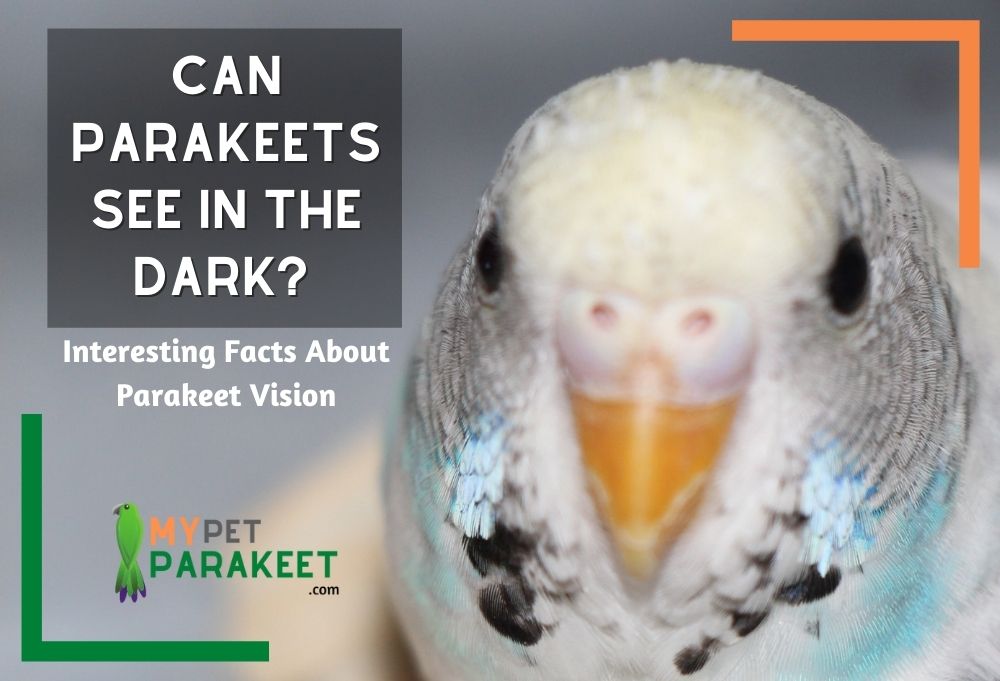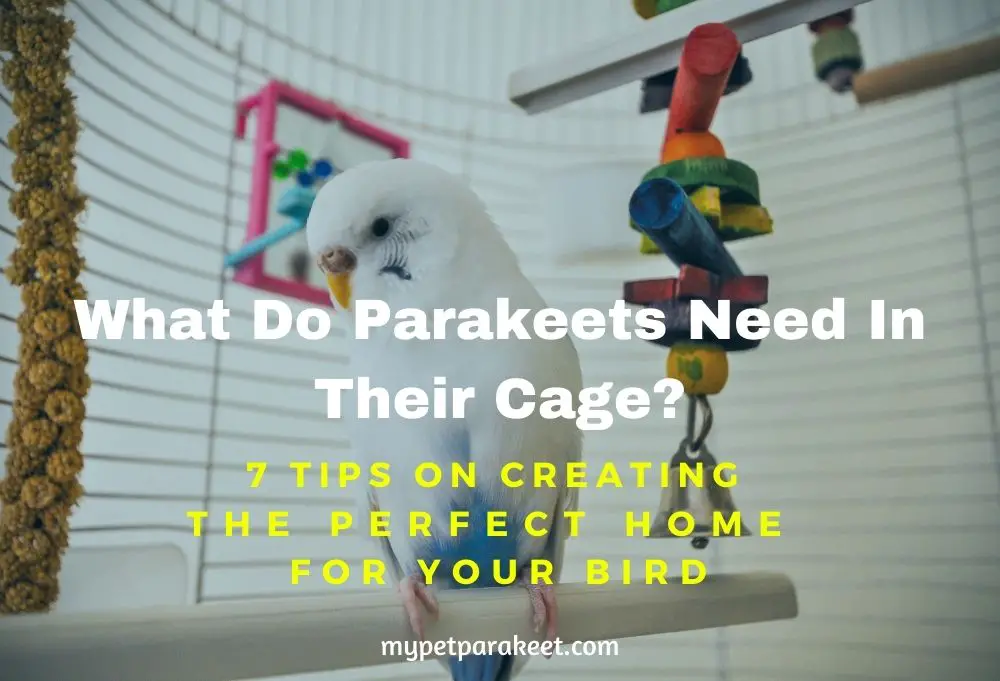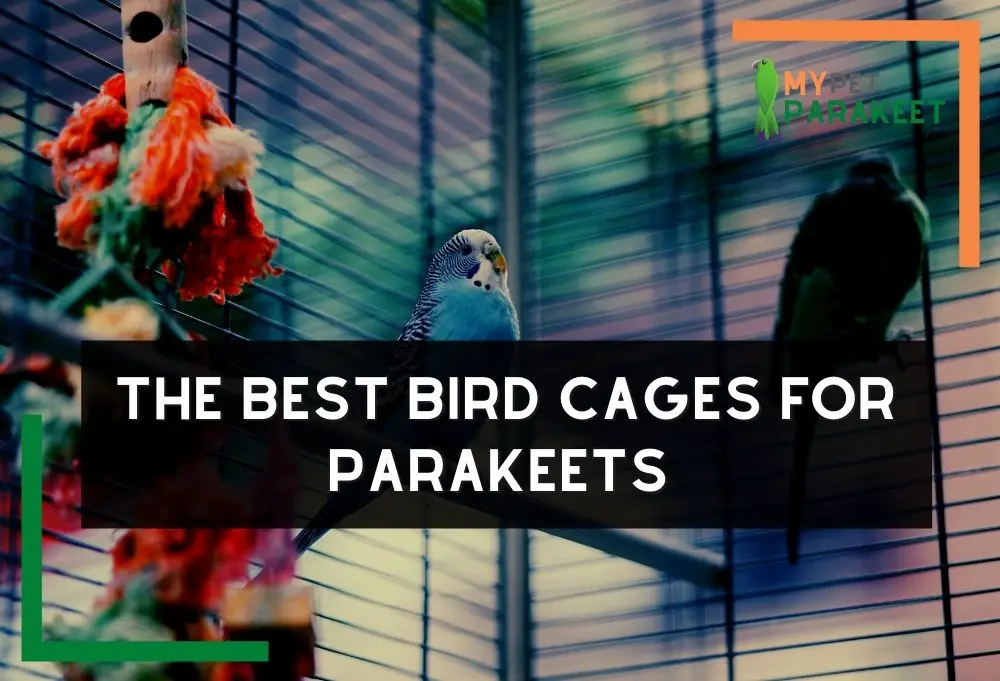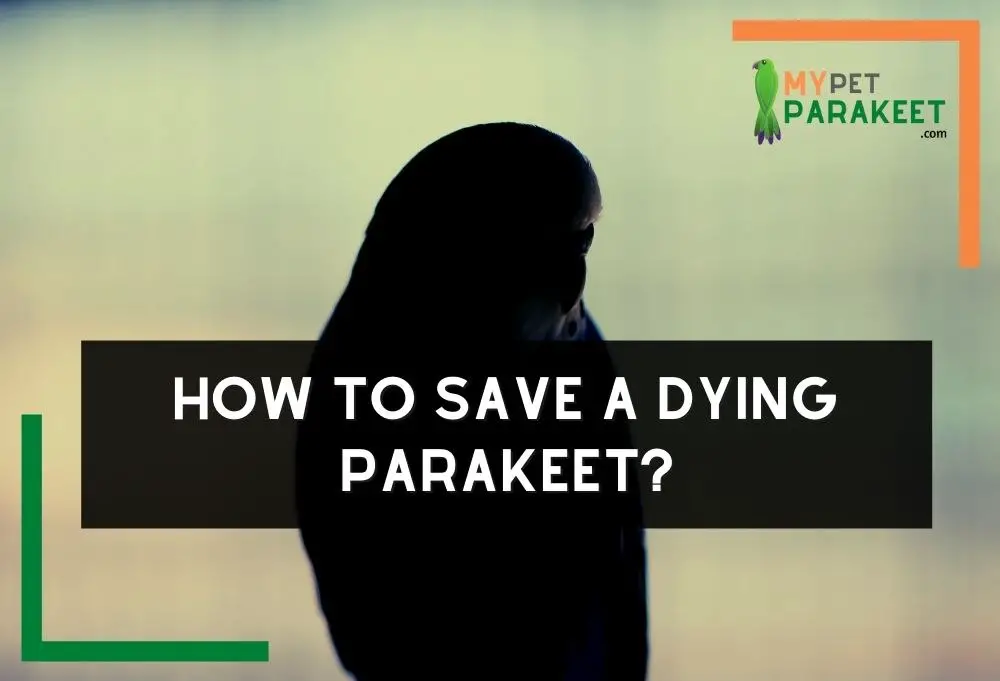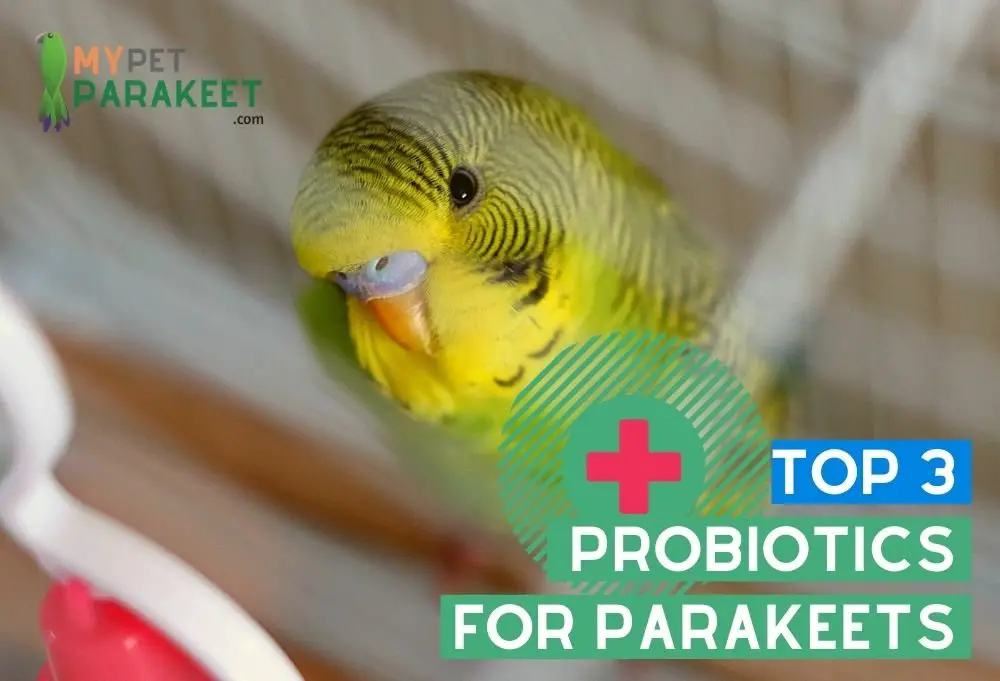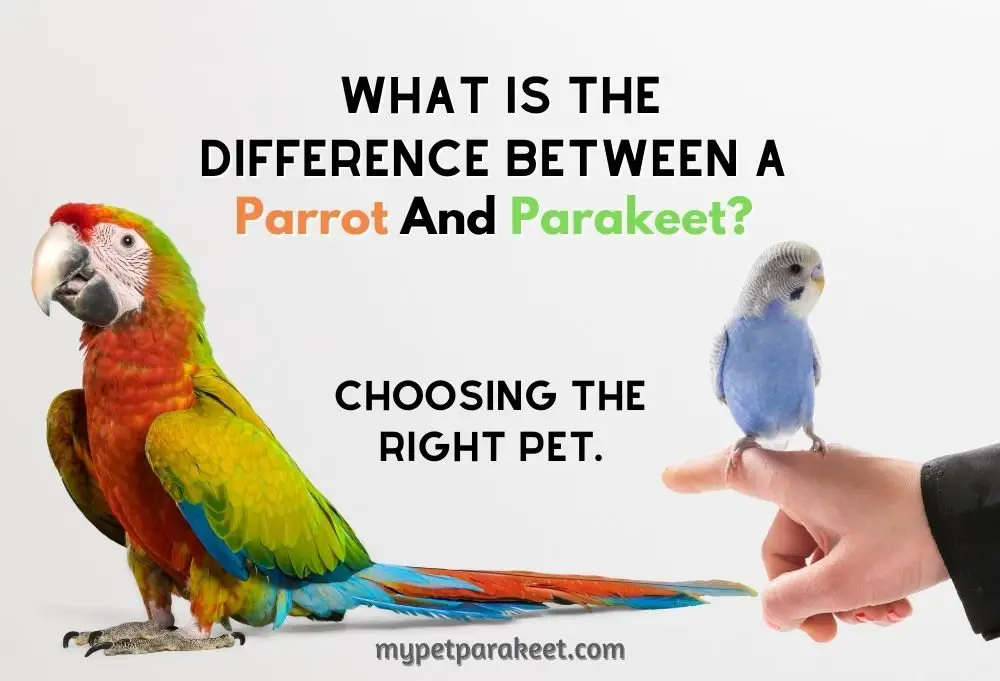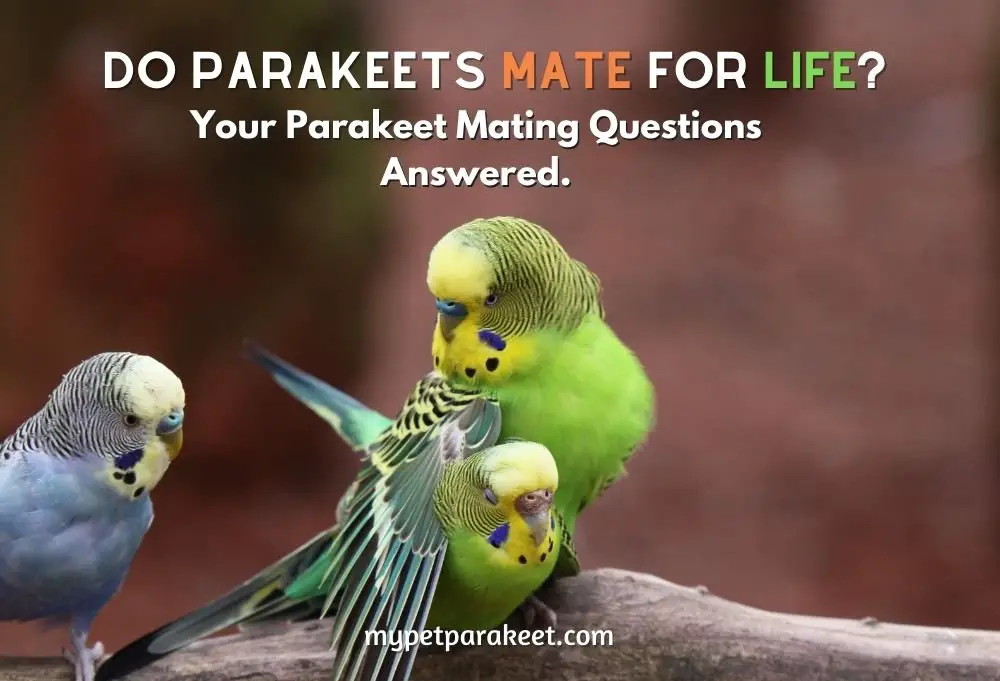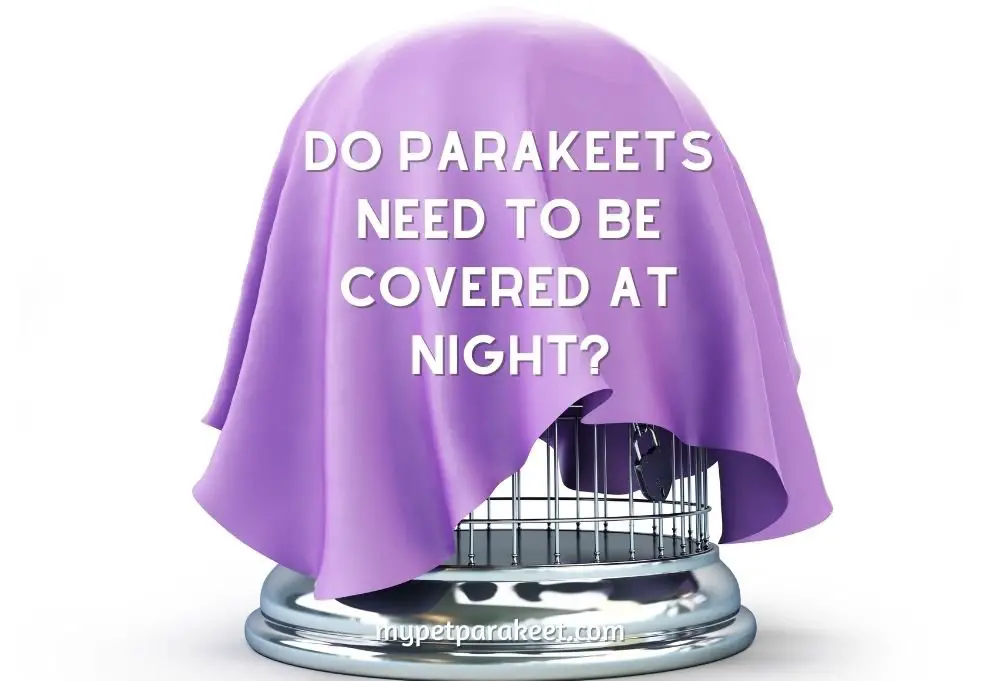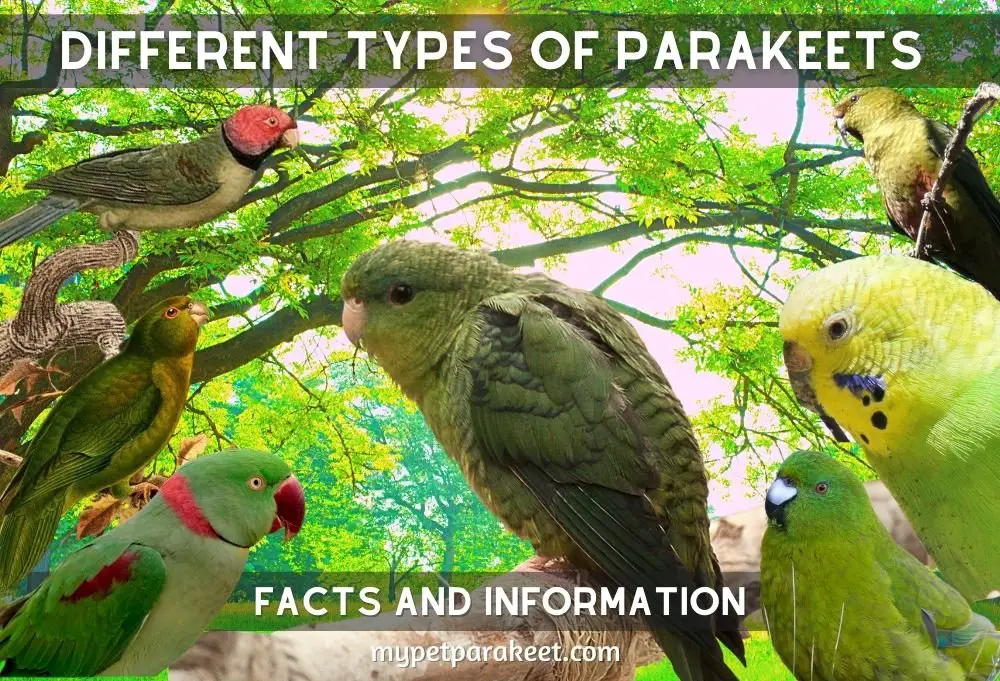The word “budgie” is derived from an Australian aboriginal word that translates to “good food”. No wonder our little parakeet friends are a prey species that is so easily spooked!
Parakeets have adapted to avoid being eaten by predators and thriving in their natural environment with various adaptations, one of which is their keen eyesight. It is often thought parakeets can’t see in the dark, but this is not true; parakeets are able to see well in the dark as their wild counterparts will often be active after sundown.
In this article, we will cover the basics of a parakeet’s vision, a guide to providing good lighting for parakeets, and ask the question, are parakeets afraid of the dark?
- What Can My Parakeet See? An Overview Of Parakeet Vision
- Do Parakeets Need Darkness To Sleep?
- Natural Lighting Cycle For Parakeets
- How Do Seasons Effect Parakeets?
- Are Parakeets Scared Of The Dark?
- How To Help A Parakeet Scared Of The Dark
- Should I Cover My Parakeets Cage At Night?
- Conclusion: Can Parakeets See In The Dark?
What Can My Parakeet See? An Overview Of Parakeet Vision
Light
Parakeets are diurnal animals, just like us humans. This means they sleep in the night and are active through the daylight hours.
But parakeets also exhibit crepuscular behaviour, which is activity displayed at dawn and dusk. Being crepuscular has advantages – it is cooler at these times of the day, many insects are active (a favourite snack of wild parakeets!) and predators are in lower numbers.
Once the sun goes down in a parakeets natural habitat, this can be a safe time to find food and socialize as predators have usually laid their heads to rest through the night. Think of the loud chattering of birds at dusk as they begin to settle in for the night!
Thus, parakeets are able to see in the dark. Although in the depth of the night a parakeets vision will be limited but they can still make out shapes and shadows.
Parakeets night vision is better than ours due to an increased number of blood vessels in the eyes.
Colors
Parakeets can see all the colors of the rainbow just like us, but better! Birds have better visual acuity, meaning they can recognize much more subtle shades in a color that we may perceive as basic and one-dimensional.
This sharpened perception of color is helpful in many ways. It helps them see and chase insects to eat, but also they can tell which fruit and vegetables are past their used by date, just by sight! This is a helpful adaption considering their sense of smell and taste is pretty underdeveloped.
The color vision of parakeets is also vital to mate choice. It helps them see who has the most vibrant and colorful feathers, indicating health and fertility to create strong and successful offspring.
UV
UV is important to all diurnal creatures. UVA contributes to regulating mood, appetite, reproduction, and rest. UVB is vital for the synthesis of vitamin D3, which is needed to absorb calcium, and lack of UVB can result in calcium deficiency.
But did you know that parakeets can also visually see UV wavelengths?
UV plays a strange role in parakeet mate selection. Beyond the obviously fabulous and showy colors of males feathers, they also have varying ultraviolent fluorescence on their facial feathers, unseen to the human eye. This fluorescence is visible to other parakeets and can indicate to females that a male is healthy, strong, and ready to mate. Kind of like a sexual aura!
Some people speculate that we humans give off these differing UV reflections based on our mood, and this changes how parakeets respond to us.
This has no scientific base, but it is commonly reported that birds are highly intuitive to human emotion – could this be due to UV? Or just simple body language?
Do Parakeets Need Darkness To Sleep?
Yes, parakeets need darkness to have a restful sleep. Parakeets are diurnal and need darkness to signal resting periods.
Just like us, parakeets' brains will respond to the increasing melatonin that is produced by a dark environment and this will signal to the brain and body to rest and recover.
Without darkness, your parakeet may not get adequate rest, and sleep deprivation is linked to a multitude of physical and behavioral issues.
Behavioral issues caused by lack of sleep:
- Aggression/irritation
- Feather plucking
- Social inadequacies
- Fear
Physical issues caused by lack of sleep:
- Immune deficiencies
- Chronic egg-laying
- Stunted growth
- Stress-bars in feathers
Read on to learn how to create a natural lighting cycle to encourage restful sleep for your parakeet.
Natural Lighting Cycle For Parakeets
The lighting required for your parakeet is simple as it is the same as ours! If it is daytime – it should be light, and if it is nighttime – it should be dark.
If you position your parakeet’s enclosure in an area that receives natural light then you won’t need to supplement light. If there is no way to provide natural light then you should be providing UV lights during the natural daylight hours.
These hours will vary naturally throughout the year. See below for a guide to the changing light requirements across the seasons.
| Season | Hours light |
| Winter | 10 |
| Spring | 12 |
| Summer | 14 |
| Autumn | 12 |
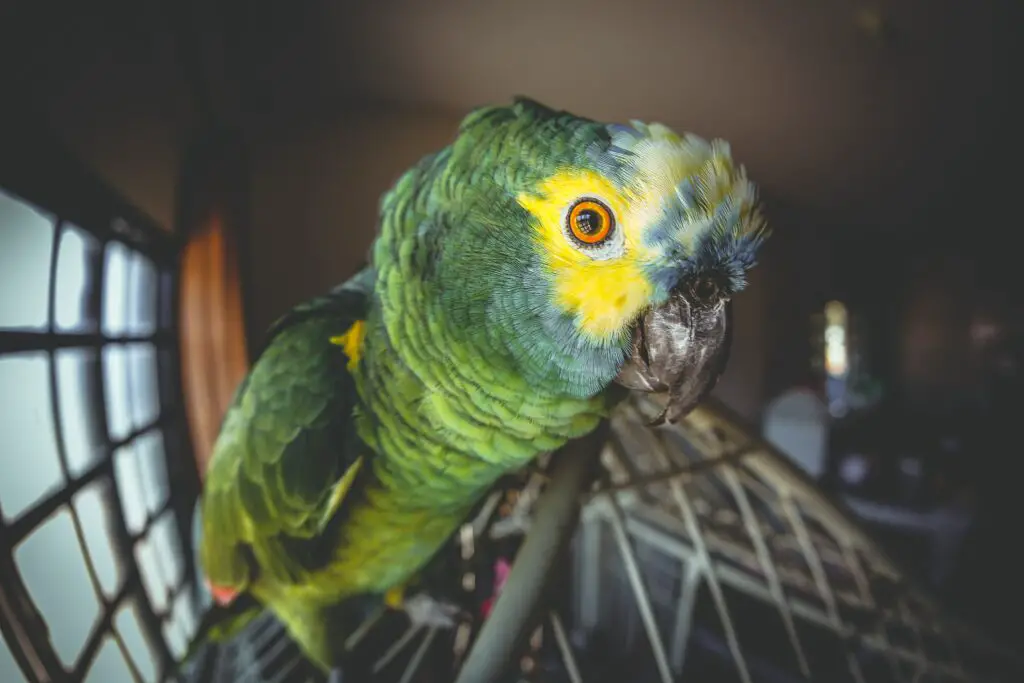
How Do Seasons Effect Parakeets?
We, humans, are the only animals that run off clocks and calenders! All other animals will take cues from their environment, and often, the most prevalent of these cues is a cycle of daytime vs. nighttime and how this changes seasonally.
The day/night cycle is scientifically called a photoperiod. The way that the photoperiod changes tells your parakeet a lot! It can advise them on how much food is available and when is the correct time to mate and breed.
If you are experienced with these cycles, you can actually use the light to modify their breeding; this is particularly useful for chronic egg laying as you can increase the dark hours to signal that it is no longer breeding season!
Are Parakeets Scared Of The Dark?
It is natural for parakeets to be in darkness during the night, but it is also common for some pet parakeets to be fearful and uncomfortable when nighttime approaches.
This is natural but only to an extent. Settling down for the night to rest does put wild parakeets in a vulnerable position so they can be particularly sensitive to noise and movement during this time and very easily get scared.
In the pitch-black of the night, a parakeet's vision is limited. Meaning, movements and shadows can scare them if they are not able to identify the cause. This can even be caused by new furniture in the enclosure or in your room! Introduce new things slowly – adding them during the day and removing them at night until they have become used to their presence.
In the early stages of the night or first thing in the morning, activity from your parakeet is not unusual. Activity in these dark dusk and dawn times can be misinterpreted as fear but may just be normal crepuscular behaviours as discussed above.
How To Help A Parakeet Scared Of The Dark
Here are some of our best tips to settling and calming a parakeet who is showing signs of being scared of the dark:
- Put them up high – either raise the cage high in the room or place high perching in their enclosure. Height gives a sense of security as they can see all around them and reduces the uncertainty of their environment.
- Move the cage – sometimes your parakeet’s cage location is to blame for night terrors. Ensure the enclosure is kept somewhere warm, quiet, and sufficiently dark. Unusual noises in the night are scary for us all, parakeets included!
- Cover their cage – covering the cage works 50/50 – sometimes helping nighttime fears and sometimes increasing them! Read the next heading for more information.
Should I Cover My Parakeets Cage At Night?
Wild parakeets sleep in cavities of trees where it is secure, dark, and quiet. This offers them safety through the night from predators and encourages important restful sleep.
Many parakeet owners absolutely swear by covering their parakeet’s cage at night. It’s no wonder it’s very popular as this can easily emulate their natural sleeping conditions and reduce stimulation from anything moving in the dark on the outside of their enclosure.
Covering a parakeets cage at night is a great way to help a fearful bird at nighttime, but for some individuals, it can make things worse.
Some parakeets like to be able to see everything from their cage, the fear of not knowing is sometimes greater than the fear of seeing something scary.
Every bird is different; if your parakeet rests happily through the night without a cover, there is no need to introduce one.
If your parakeet is struggling to rest, covering the cage may help it to relax and rest well to encourage a happy and vibrant bird. To read more about covering your parakeet's cage at night, check this post out where we cover the topic in depth.
Conclusion: Can Parakeets See In The Dark?
Now we know that, yes, a parakeet can see in the dark, but only to a certain extent!
We have also learned about a healthy lighting cycle and the importance of photoperiods in parakeets.
As owners, we now have the information to ensure we promote restful sleep in our parakeets so they can spend the day engaging in fun and happy behaviors.

